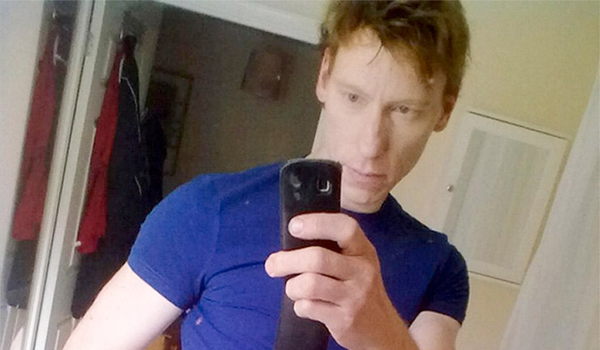Special force training on gay chemsex crime as murders `show up date app failings`
Lesbian, gay, bisexual, and transgender (LGBT) groups are helping to train frontline officers after an investigation was launched into missed opportunities to catch a serial killer.
Lesbian, gay, bisexual, and transgender (LGBT) groups are helping to train frontline officers after an investigation was launched into missed opportunities to catch a serial killer.
The Metropolitan Police Service (MPS) is adopting measures to increase knowledge among the gay community in the wake of Stephen Ports murder spree.
The special measures to deal with rape and sex crimes against males were announced on Friday (November 25) as the family of Jack Taylor, Ports final victim, claimed their concerns over the initial investigation went unheeded because he had been dismissed as a gay and a druggie and that was it.
Port, 41, was given a whole life sentence without release by Mr Justice Openshaw at the Old Bailey for the murders of four gay men: Anthony Walgate, 23, Gabriel Kovari, 22, Daniel Whitworth, 21, and Taylor, 25. Port had given them fatal doses of the drug GHB to satisfy his fetish for sex with drugged, unconscious boyish-looking males.
Commander Stuart Cundy, of the MPS specialist crime and operations command, said that steps were being taken to enhance the knowledge and understanding of our officers about drugs-facilitated sexual assault, or sexual assault following chemsex.
Officers who investigated these offences are being trained with the help of the anti-violence charity Galop and other LGBT organisations. A toolkit and a checklist document has been created to provide guidance for officers on how best to respond to allegations.
A pilot study was launched by the MPS in September to increase knowledge of the kind of drugs used to facilitate the sexual assault of men, Mr Cundy said.
Victims were being asked to provide a urine sample to test for GHB also known as G or liquid ecstasy which is the drug most commonly used in such cases.
As part of the study, tests for GHB were also being carried out on males who had died and there was evidence of sexual assault or the death was unexplained, he said.
Following Ports sentencing, police leaders said dating apps must do more to protect users from violence.
Sites should carry warnings that user identities can be faked and urge customers to “get to know the person not the profile”, said the National Police Chiefs` Council (NPCC).
Police lead for LGBT at the NPCC, Chief Constable Jane Sawyers, told the BBC the app companies could do more to prevent the offences in the first place.
She suggested apps could tell users to get to know the person, not the profile, and carry warnings about fake accounts.
There should not be any concerns about gay people reporting things to police … we are not there to judge, what were interested in is justice for the individual, she added.
The MPS itself has come under fire for its handling of the crimes and is currently under investigation by the Independent Police Complaints Commission (IPCC).
Seven officers have been served with gross misconduct notices informing them they are under investigation, while another ten have been served with misconduct notices.
The MPS is now re-examining 58 unexplained deaths involving the drug GHB from a four-year period, across London, in case signs of suspicious death were missed.
During the investigations into the murders, it is claimed the force ignored advice from its own LGBT independent advisory group and journalists at the website Pink News, all of whom raised concerns about a serial killer.
The MPS admitted it missed potential opportunities in investigating the deaths and has urged other victims to get in contact. As Port was convicted, the force offered personal letters of apology to the victims families for the missed opportunities to catch the killer sooner.
The court heard he lured his victims to his London flat, where he secretly gave them GHB.
During the trial it emerged that Port, a bus depot canteen chef, had been arrested and charged for lying about how the body of his first victim, Walgate, came to be found dumped outside the communal entrance to his flat in Barking, east London, in June 201


